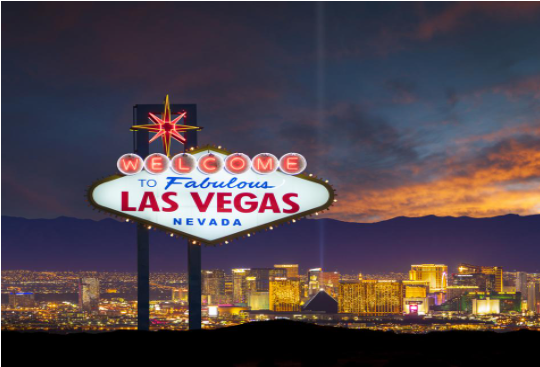Most Popular Cities to Gamble in the World
Despite the growing popularity of online gambling, many people still prefer the atmosphere of a land-based, brick-and-mortar casino. There’s something about the experience that cannot be replicated, and quite a few gamblers will invest in traveling to cities that are known for their casinos.
The global casino industry has been growing over time. After a decline brought about by the COVID-19 pandemic, it has bounced back, and the numbers speak for themselves. The industry experienced a significant drop in growth in 2020, and then grew in 2021, reaching a value of $231bn.
Most major cities around the world will have a casino or two depending on the country’s legislation, but some are mainly known for their nightlife and gambling establishments. People visiting these cities are greeted by infrastructures and facilities that are created with casino activity in mind.
We would recommend that any gambler who wishes to explore the global casino landscape put the following destinations in their itinerary.
Las Vegas, Nevada
The very first destination that comes to mind when you think about casinos will most likely be Las Vegas. Known as the ‘Entertainment Capital of the World’, it is home to approximately 150 establishments, all designed to the highest standards. Fifteen of the world’s 25 biggest gambling venues are located here.
Most casinos in the city offer classic table games – blackjack, poker, roulette, and craps – as well as more modern casino games, ensuring that there’s something for every visitor.
The city has the highest number of casinos per square footage in the world, and although the Nevada Gaming Control Board accounts for an approximate number of casinos, it is difficult to keep track of an exact number.
According to its definition, a casino is any establishment that has at least 15 gambling machines, including slots and video poker, but this doesn’t include venues that have sportsbooks, bingo and horse track racing. If all these were to be included, the number of casinos in Las Vegas would be much higher.
The Strip alone has 51 casinos, and they are the ones that generate most of the city’s revenue. Although most have the same games on offer, each has a unique atmosphere and aims to provide a memorable experience for its guests.
You do not necessarily have to set aside a large gambling bankroll to enjoy a stay in Las Vegas. A good number of the establishments offer affordable accommodation and meals, and games with small minimum bet amounts are frequently found in casinos.
Gambling in Las Vegas has a long history that can be traced all the way back to the 1800s, when explorers and thrill-seekers settled into the area during the Gold Rush period, bringing a variety of wagering games with them.
Although the practice was outlawed at the time, many rag-tag underground casinos were frequented by miners and people who stopped over on their way to Salt Lake City.
In 1931, things changed in the small town, and it was the beginning of Las Vegas as we know it today. Thousands of workers came in for the construction of the Hoover Dam, and because gambling was already so popular, it was quickly legalized.
Thomas Hull, a businessman, was granted the first license to construct a casino in the city and he built his establishment along what is now The Strip.
His success caught the attention of other businessmen, as well as the New York mob. Bugsy Siegel, a known representative of the organization, was sent down to build The Flamingo, the biggest casino of the day.
It was obvious that the city offered plenty of opportunities, and large numbers of people from various cultures and backgrounds visited the casinos every year. It continues to flourish to this day, and casinos are its biggest source of revenue.
Macau, China
Macau, in the South China Sea, is often referred to as the ‘Las Vegas of the East’, and it has grown over the years to become one of the greatest gambling destinations in the world.
Once an island, it was eventually connected to mainland China by the construction of a sandbar, which made it an isthmus. Over time, land reclamation turned it into a peninsula, and a gate was installed to separate it from the mainland.
Macau has more than 50 casinos, and for many, it is the best gambling destination in the world. This is because the casinos there can simply be defined as grand. They are huge, glitzy, luxurious establishments where patrons are treated like royalty.
City officials understand the value of the gambling industry, and everything that they do is geared toward making it as comfortable as possible for tourists and patrons.
How did a small island in the South China Sea become such a giant in the gambling industry?
Just like Vegas, it all goes back to the 19th century. At this time, Macau was an autonomous colony of Portugal. In a bid to generate revenue, the Portuguese legalized gambling in the 1850s and introduced licenses for gambling houses.
Every licensed house was required to pay tax to the government, and the city started to rely more and more on this income.
By the 1960s, Western-style casino games were on offer, and the government improved marine transport to make it easier for gamblers to get to the peninsula. Millions of gamblers poured in from Hong Kong, China and neighboring countries, and Macau, as we know it today, was born.
Although it is a special administrative region of China and ownership of the land was returned in 1999, it operates independently, and Beijing doesn’t interfere much with how the casinos are managed.
Atlantic City, New Jersey
New Jersey doesn’t spring to the minds of many as a top gambling destination, but it has some of the oldest casinos in the US.
Although the city is home to far fewer casinos than Las Vegas or Macau, it offers a vibrant atmosphere to gamblers and tourists alike. It is a great destination for those who want to take part in a bit of gambling without the hustle and bustle that comes with visiting bigger cities.
The city had its first referendum on casinos in 1974 and it was defeated in 19 of the 21 counties, with 60% of voters going against it.
A second referendum was tabled in 1976, restricting gambling within the confines of Atlantic City, and this one passed but with a very slim margin. It allowed the city to open its first legal gambling establishment, Resorts International, in 1978.
By 2012, the gambling industry in New Jersey was well-established, employing more than 34,000 people on casino floors alone. This number doesn’t include workers in casino restaurants, shops, bars and other similar businesses.
Resorts Casino is one of the oldest establishments in the city and was the first to be constructed on the boardwalk in 1978. It underwent an expansion in 2004, adding more than 20 stories, and again in 2011 when it added a Roaring 20s theme.
When the resort opened in 1978, it was allowed to operate for only 18 hours a day during the week and 20 hours during the weekends, which led to long queues of patrons all lining up, waiting to get in as soon as the doors opened.
It remains a favorite among gamblers in Atlantic City, and many Americans travel from different states to enjoy its unique atmosphere.
Singapore
Singapore, in Southern Malaysia, is ranked the fourth biggest gambling destination in the world. It is unique because while other gambling cities rely on tourists for much of their revenue, it relies on locals. A significant 60% of all the income generated from the gambling industry is due to locals alone.
Gambling was officially legalized in Singapore in 2005 but had been briefly legalized in 1923 when still under British rule. The history of wagering in this city goes back much further to 1842 when the Singapore Sporting Club opened its doors to manage the Serangoon Road Racecourse.
Today, alongside ordinary gambling, there’s also bookmaking and informal gambling. Although Singapore has just two large casinos, it is placed just third after Las Vegas and Macau in terms of revenue from the industry.
One interesting thing to note about casinos in Singapore is that gamblers are required to pay an entry fee depending on their country of origin. Native Singaporeans pay more than patrons from other countries because the government is keen on making sure that they don’t develop addictions.
This, however, doesn’t seem to dampen local enthusiasm because most of the revenue generated by casinos comes from Singaporean nationals.
Aruba
Aruba is a small island in the Pacific near Venezuela and Curaçao. Formerly occupied by the Netherlands, it is one of the biggest gambling destinations in the world today. It is home to 13 casinos, and although the industry is rather new, it is booming.
The first establishment, owned by Jake Kozloff, opened its doors in 1959 and operated without any competition for 11 years. Many others have come and gone, but the industry has seen impressive growth over time.
Many who travel to Aruba are after the sun and surf, but a good number of people are primarily there to gamble. Between 2016 and 2017 alone, there was so much demand for facilities that island authorities issued licenses to three brand-new casinos.
All the establishments are built to world-class standards and offer a wide variety of games, the same as you would find in places such as Las Vegas and Macau. The casinos open early in the day and keep going until the early hours of the morning. Tourists are required to show identification before they can get into any establishment and, as expected, all patrons must be 18 years of age or older.
These are just five of the top gambling destinations in the world. There are many more, and although they may not be giants in the industry, they all have something to offer both amateur and professional gamblers.




